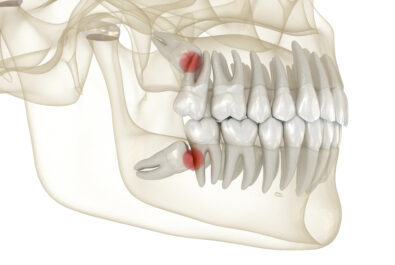Dentures are among the oldest forms of tooth replacement, and still remain a lifeline for patients who’ve lost most or all of their teeth. Yet, despite the benefit of rebuilding smiles and restoring patients’ abilities to bite and chew, many denture-wearers share a common complaint – the appliance’s propensity for losing its grip and becoming loose. As dentures shift uncomfortably along your dental ridge, they can injure your soft periodontal tissues while making it more difficult to bite, chew, and speak comfortably. To prevent dentures from slipping, a series of dental implants can be inserted into your alveolar bone, mimicking the roots that support your natural, healthy teeth.
How Traditional Dentures Slip
Conventional full and partial dentures are designed to grip your dental ridge tightly. The custom, comfortable plastic base is modeled after the size, shape, and curvature of your upper/lower jawbone. Over time, the absence of a tooth’s root can cause the bone in that area of your jaw to resorb, gradually losing density. As the area changes shape, your custom-made dentures will no longer fit as they once did, and will begin to loosen uncomfortably. To keep up with the changes, you will have to have your dentures resized or replaced every several years.
A Lifelike Solution with Implant Dentures
Instead of sitting on top of your dental ridge as dentures typically do, implant-retained dentures rely on the support of four or more dental implants. The implant posts are strategically-inserted into the jawbone, and the denture is secured on top of them. Besides the lifelike support and stability, dental implants also stimulate the jawbone to help preserve its strength and integrity.














